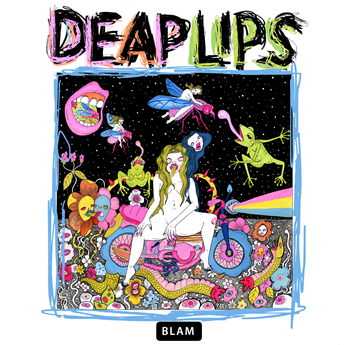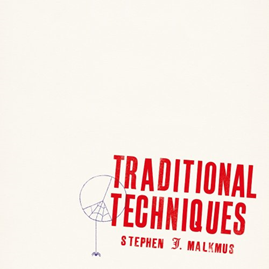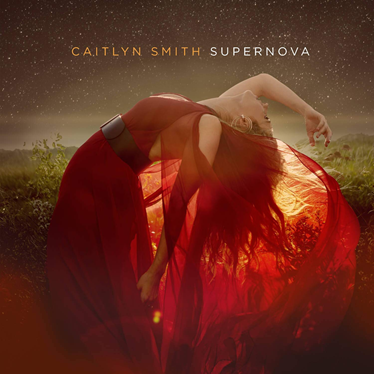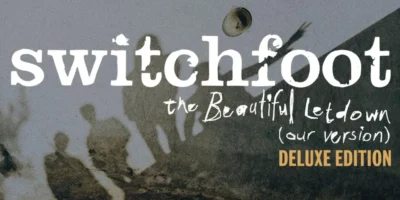We’re here to tell you what’s hot and what’s not on this week’s music roundup

Caribou – SUDDENLY
Genre: Indietronica
Favorite Tracks: “You and I,” “Home,” “Never Come Back,” “Magpie,” “Ravi”
Dan Snaith rattled off one of the most impressive three-record runs in recent memory with ANDORRA, SWIM, and OUR LOVE. The indelible trio was a stark shift in Snaith’s sound, eschewing folk and jazz influence and diving head first into house. It wasn’t all at once—ANDORRA exquisitely bridged that divide, melding Beach Boys psychedelic pop with modern microhouse into the finest release in his discography—but by SWIM, Caribou was an entirely new project, carving out dancefloor diamond after dancefloor diamond. OUR LOVE served as the de-facto comedown, still littered with some of his greatest tracks but the tempo had slowed considerably from the frenzied SWIM. With that bow neatly tied, it was anyone’s guess what new path Snaith would venture down with SUDDENLY.
The answer to that question, as we’ve learned, was a mix of lo-fi house and plunderphonics. Track one on SUDDENLY instantly abandons what had come to be a reliable trend on Caribou albums, saving the best song for first. “Sister” is a few standard deviations slower than past side-A starters and sets the bar lower than we’ve come to expect from Snaith. Quickly establishing itself as a work of peaks and valleys with singles like “You and I,” “Home,” and “Never Come Back” carrying a bulk of the load while cuts like “Sunny’s Time,” “Like I Loved You,” and interlude “Filtered Grand Piano” stall in a way we haven’t heard from Snaith in 15 years, SUDDENLY still hits on his thematic touchstones, love and loss, throughout the record—“Magpie,” a tribute to Julia Brightly, a longtime collaborator who passed away just before his last album, is particularly touching. “New Jade” and “Lime” are lovely examples of his producing prowess, chopping and distorting his own vocals as if they were sampled while splicing in those delightful fluttery boot-up sounds that accented OUR LOVE.
Snaith’s seventh LP peaks on “Ravi,” a lo-fi house track that is quintessentially him. Where once he used to reach back decades for inspiration, Snaith as of late has pulled from the contemporary well. Just like how “Back Home” was unmistakably informed by Jai Paul, “Ravi” is no doubt in the mold of DJ Seinfeld. The beat swells in and out of focus around a looped vocal sample and every so often you can hear hints of Snaith himself until the instrumental fades almost entirely before he croons his only couplet, “It’s always better when I’m with you / And you hold me like you used to do.” Then, like a firework, the track explodes into the foreground, making for not only the highpoint of the record, but one of the most euphoric moments in his catalogue. Like clockwork, Snaith sounds like he never has before. [Ryan Moloney]

Deap Lips (Flaming Lips x Deap Vally) – DEAP LIPS
Genre: Psych Rock
Favorite Tracks: N/A
It’ll take you roughly two-minutes-and-thirty-seconds before you decide to punch out of DEAP LIPS, right around the moment Lindsey Troy sings “Oh, I think I tried too hard to shut the mouth of doom / Taking all my wisdom from the flaming lips of youth.” It’s in that moment you can sense Wayne Coyne orgasm, the name of his past-prime psych rock outfit used colloquially by a singer who was born the year the group released their debut, no doubt exciting for an egomaniac of his level. DEAP LIPS, the record Coyne & Co. have released with blues rockers Deap Vally, is some of the worst collaborative music the band have ever released, somehow blander and stupider than the deeply suspect MILEY CYRUS & HER DEAD PETZ, lacking the fully formed structural backbone of WITH A LITTLE HELP FROM MY FWENDS, and quite frankly in need of the intense singularity brought by one-off features with artists like Nick Cave, Lightning Bolt, Neon Indian, Bon Iver, or others.
And look: Deap Vally’s debut, SISTRIONIX, was a solidly crafted blues album that struck at the exact right moment when bands like The Black Keys and The Kills had abandoned a grimier, fuzzier two-piece sound in favor of sonic evolutions both good and bad. But beyond being what I’m sure was an exciting work-with-your-idols opportunity for the two women, I’m not entirely sure what anyone here thought they’d get out of a full album of this sound, especially given Deap Vally are about the weakest creative adversaries the Flaming Lips have attempted to collaborate with in a long time. I’m going to emphasize the world “adversaries,” because that’s what collaborations with the Flaming Lips frequently seem like; with strong creative presences to almost sonically tug-of-war with, at worst you end up with a forgettable Flaming Lips song that you can’t tell featured anyone and at best you get something halfway listenable (I always thought Neon Indian was able to guide the band into something semi-interesting, not great per se, but something with vision). But when the group doesn’t have a strong creative presence keeping things in check, that give and take devolves into rudderless stupidity and spiritless psych dribble.
More specifically, you end up with DEAP LIPS, which for 38 minutes finds Troy trying and utterly failing to bring Coyne’s surrealist, arrogant ambivalence lyrically alive, the wild amount of cursing meant to seemingly match his often brash persona but instead coming off as childish. The Flaming Lips doing a minimalist psychy blues record sounds interesting (albeit totally unnecessary) on paper, but ultimately what we’re presented with is an album of cringy and barely listenable recreations of the group’s historic work, songs like “There Is Know Right There Is Know Wrong” baffling in perceived majesty that simply is never earned. The psychedelia is cheap, lacking in any kind of actual sonic vision that doesn’t just feel like Deap Vally trying to keep up, and the Flaming Lips going through repetitive, stale motions—the two-minute “Motherfuckers Got To Go” is as spirited as they ever get despite that track being a never-ending bore. And while I’d love to blame The Flaming Lips, and it is ultimately 50% their fault, I barely even hear Wayne Coyne ON these songs, as absent as Deap Vally’s marginally interesting blues rock dynamo energy. It’s just unnecessary psych fluff, as though people listened to YOSHIMI BATTLES THE PINK ROBOTS once and decided it was a part of their musical identity without understanding what made some of those songs fun. The more you listen, the more DEAP LIPS should anger you, and the more you come away with the conclusion that every single person involved in this project should have known better from the jump. To quote the band on “Hope Hell High:” “It’s a motherfucker, it’s a motherfucker / Blam, blam, blam, blam, blam, blam, blam, blam, blam, blam, blam, blam, blam, blam, blam, blam, blam / Blam, blam, blam, blam, blam, blam, blam, blam, blam / Blam, blam, blam, blam, blam, blam, blam, blam, blam, blam, blam, blam, blam, blam, blam, blam.” [CJ Simonson]

Conan Gray – KID KROW
Genre: Pop
Favorite Tracks: “Wish You Were Sober,” “The Cut That Always Bleeds,” “Comfort Crowd,” “Heather”
Remember when you listened to Khalid’s AMERICAN TEEN and had the regretful but inevitable notion: “Do I want to be a teenager again?” Conan Gray’s debut KID KROW is the diametric opposite of that. Gray’s fond approach to this album mixed with his general nihilism is to steep youth in the maximum cynicism possible, radiating far more “I need to grow up because my mind can’t take the helpless agony of being on the cusp of my 20s” energy as opposed to “Let’s savor our adolescence and dance ‘til sunrise.” Where Gray’s EP SUNSET SEASON juxtaposed whimsy and saturated primary colors against jaded pessimism, KID KROW grows in its frustration and longing for an adulthood that probably doesn’t exist, with Gray’s completely tumultuous understanding of his own sexuality as an undercurrent.
KID KROW’s pop influences are clear: Taylor Swift, Troye Sivan, Paramore, Billie Eilish, and Frank Ocean, to name the most prevalent. Yet, even in saying that, Gray has made sure to separate himself and find autonomy in his lyricism and personal anguish, with tracks like “Heather” being remarkably specific to his experience, yet biting enough to make anyone clutch their heart and recollect a time they felt detrimental love and hope to God he gets over it soon. “Little League” similarly pines, or even aches, for a self-attributed “simpler” time but ultimately remembers that even at that age, every problem feels infinite and as gut-wrenching. “Comfort Crowd” and “The Story” remind the listener that romantic love can be futile, but when nurtured, platonic love is the force that will somehow get us through this infinitely cruel life. Each listen is an invitation to start the aforementioned friendship. While AMERICAN TEENAGER douses you in a nauseous nostalgia of wishing to get a second chance at teenagehood, KID KROW reinvents FEARLESS by reminding us to pop the lens out of our rose-colored glasses and feel every single thing possible. [Jesse Herb]

Stephen Malkmus – TRADITIONAL TECHNIQUES
Genre: Indie Folk
Favorite Tracks: “The Greatest Own In Legal History,” “Amberjack”
There comes a point in any artist’s career where they’ve been around long enough to make whatever kind of record they desire without anyone questioning them. Stephen Malkmus has put out dozens of albums since the early 1990s with bands as revered as The Silver Jews, Pavement, and The Jicks. At this point the man could record the sound of himself chewing an apple and put it out on Matador. Last year’s kraut homage GROOVE DENIED provided ample evidence that Malkmus has hit an age where he is prolific enough to put out recordings of chaotic noodling and still get press coverage. This year’s interesting and undeniably singular TRADITIONAL TECHNIQUES proves that Stephen has hit a point in his career where the traits that defined his three-decade-long run as a songwriter are no longer entertaining to him as he desperately clings to various gimmicks to keep himself invested enough to continue writing music.
TRADITIONAL TECHNIQUES is an indie folk record that sounds like this Portlandia sketch, but has the Silver Lake dad pretension of this Portlandia sketch. The record trades the plugged-in palette of Malkmus’ previous projects for a selection of traditional acoustic instruments that the singer became fixated on while recording 2018’s fantastic SPARKLE HARD at Pearl District’s Halfling Studios. It results in an album that plays like three hobby musicians noodling in the acoustic instrument room at your local Guitar Center with some lute overdubbed for good measure. While Pavement certainly dabbled in ironic folk jams, and Malkmus wrote his share of pseudo-outlaw country with Silver Jews, the earnest fascination with exotic unplugged sounds on TRADITIONAL TECHNIQUES has a cringe-worthiness only a father of two can channel. GROOVE DENIED stayed true enough to its roots to be discernible as a Malkmus album, but his most recent work sounds like a different and much worse artist entirely.
There are a lot of components that contribute to TRADITIONAL TECHNIQUES being a very boring, awkward, and funny listen, but that the lyrical wittiness that made Malkmus a critical darling to begin is replaced by neo-Donovan psychedelic moaning is unforgivable. Most of the album’s prose is indiscernible and sounds like the type of Los Angeles tye-dye revival that I imagine Malkmus loathes. “Xian Man” and the know-what-you’re-getting-into titled “Flowin’ Robes” both have the Laurel Canyon reenactment energy of a bad Levitation Room track. Where I was expecting to get the finely aged insight of SPARKLE HARD highlights such as “Middle America,” I instead got the drone-y “white guy attempts Middle Eastern folk” of tracks like “What Kind Of Person.” With the exception of album closer “Amberjack,” TRADITIONAL TECHNIQUES is an awkward, culturally appropriative attempt at 1960s Turkish kitsch that acts as the low point in Stephen Malkmus’ career thus far. Just because someone can record a song that pushes their boundaries doesn’t mean that everyone needs to hear it. Putting on TRADITIONAL TECHNIQUES without context for the album’s novelty is like putting on a Jeff Tweedy project and getting a poorly sequenced deep house album when you’re expecting polished and refined country rock. [Ted Davis]

Caitlyn Smith – SUPERNOVA
Genre: Pop Country
Favorite Tracks: “Damn You For Breaking My Heart,” “Supernova,”
The best thing I can say about SUPERNOVA is that it forced me to reevaluate my thoughts on Caitlyn Smith’s debut STARFIRE, which I had limited experience with and thus assumed to be a much different record than her sophomore release. I knew Smith was on the dreamy side of country, trading in twang and gruffness for textured keyboards and a theatrical, dramatic presentation—in another decade, she’d no doubt be considered soft rock. SUPERNOVA moves even farther away from her country roots, resembling the folk-inflected indie rock of Florence + The Machine or the adult contemporary drivel from five years ago like Shawn Mendes or Rachel Platten. Although Smith’s vocals remain powerful and have gotten better at communicating subtle emotion, nearly everything else has taken a nosedive in quality, resulting in an over-dramatic slog with terrible production and too many lyrical cliches to count.
STARFIRE’s greatest asset was its sense of intimacy: even though it was also trying to be windswept and brooding, the instrumentation was warm enough and Smith sprinkled in enough detail that the album felt inviting and personable. SUPERNOVA throws all that out the window with over-mixed percussion, a refusal to let quiet moments sink in, and too many rote lyrics that rob her of any personality. “I Don’t Want to Love You Anymore” had some promise, especially in the second verse when she questions how her ex could move on so easily when she couldn’t, but it’s ruined by garrish stomps and trite pablum like “you’re in my blood / you’re in my veins.” The title track is the best song on the album because it strips things back and overcomes its simple concept of time moving too fast by applying it to different vignettes of a teenager moving away from home or a parent holding a child and wondering how they will ever let them go.
Smith is doing her best to imbue with these songs with more emotion than they deserve, and she almost succeeds on “Damn You for Breaking My Heart” despite the chorus only consisting of the title and horrible “Your love has taken control of me / Taken control of me, taken a toll on me.” Sadly, the production does her no favors, as guitar solos sound scuffed and fizzy on “Long Time Coming” and “I Can’t.” The aforementioned Florence + The Machine always brought in more color and psychedelic texture than Smith’s rinky-dink and liquid backing tones that are splattered all over the mixture here. When the album tries to go for intimacy, like “Feel That Way,” co-written by Ashley Monroe and resembling her weakest songs on THE SPARROW, her multitracking is sloppy and shrill rather than pleasant and clean, which does not fit the general cleanliness of the rest of the production. And the terrible lyrics persist: the similarities between “I get so high like an airplane” on “Fly Away,” “You take me high, but I’m dropping low” on “Put Me Back Together,” and “Your high would take me higher than the stars” on “All Over Again” point to thematic tiredness as well. Again, the best thing I can say about SUPERNOVA is that it made me appreciate STARFIRE a lot more, because it knew how to ground its theatricality with details and warmth. The fact that it barely works as country music isn’t the problem: it’s that it doesn’t work as anything else either. [Blake Michelle]

U.S. Girls – HEAVY LIGHT
Genre: Noise Pop
Favorite Songs: “Overtime,” “IOU,” “Denise, Don’t Wait”
Meghan Remy continues to blossom on her seventh studio album as U.S. Girls, HEAVY LIGHT. Considering most of the world is feeling burdened by current COVID-19 events, the album feels like a slight misnomer; in spite of the oxymoronic title, there definitely is a lot of lightness present, especially opening track “4 American Dollars,” featuring a satin disco chicness with a groovy rhythm that will have backup singers, dance moves and all, popping into your mind, and “Denise, Don’t Wait” featuring a similar flourish of whimsy. Similar to IN A POEM UNLIMITED, disco and nostalgic pop flourishes are the baseline of a stylistically ever-shifting album. “Overtime” and “IOU” lead you slowly through the heavier side of the album with growing existentialism only to be interrupted by “Advice to Teenage Self,” a compilation of soundbites from interviews (appropriately and thematically titled) with each person’s answer layered on top of each other in a musical ballet. These interviews appear twice more in “The Most Hurtful Thing” and “The Color of Your Childhood Bedroom,” each interlude helping Remy to switch styles while exploring pain, shame, and nostalgia in voices beyond her own. The choir-infused “State House (It’s a Man’s World)” follows one such interview before leaping into the forlorn “Born to Lose,” with all its lowkey vibraphone and congas, followed by the Latin vibes of “And Yet It Moves / Y Se Mueve”—that variety is made possible thanks to the nearly two-dozen artists that contributed to HEAVY LIGHT. Though it might seem excessive, this process of leaning on her fellow artists is what makes U.S. Girls so incredibly enjoyable sonically; it’s not just about fine-tuning instruments, it’s about handpicking artists who can bring the right vibration to her songs. U.S. Girls might not rely on noise as much as in the past, but every sound is crucial and adds complexity to Remy’s smooth vocals. Over a decade into her career, it’s clear that U.S. Girls is a crucial key to modern pop music, remaining relatable without sacrificing artistic process or progress. [Liliane Neubecker]
















Comments